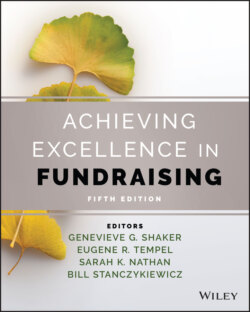Читать книгу Achieving Excellence in Fundraising - Группа авторов - Страница 35
Confidence in the Work
ОглавлениеAmong most important components of a philosophy of fundraising is one's attitude toward fundraising. Rosso's (1991) call for fundraisers to “substitute pride for apology” remains as relevant today as 30 years ago. In other words, there is no need to be sorry about asking for money and inviting gifts. Instead, fundraising is proud and honorable work enabling positive change and opportunity in society. Those who do not believe in the values being promoted by the case for support, those who see fundraising as an end in itself risk seeing fundraising as begging. Those who do not believe that the beneficiaries are worthy of support risk mistaking fundraising for being about the money rather than the cause. Those who do not understand that giving and volunteering bring joy to donors and volunteers may see fundraising as diminishing others, as taking something away, as getting people to act against their better judgement.
There are many attributions for the phrase “It's better to give than to receive.” Here is how Maya Angelou (1993) put it: “… I have found that among its other benefits, giving liberates the soul of the giver… . The giver is as enriched as is the recipient, and more important, that intangible but very real psychic force of good in the world is increased” (15). In short, a philosophy of fundraising must be based on confidence that fundraisers help donors and volunteers find fulfillment through generosity to others.
